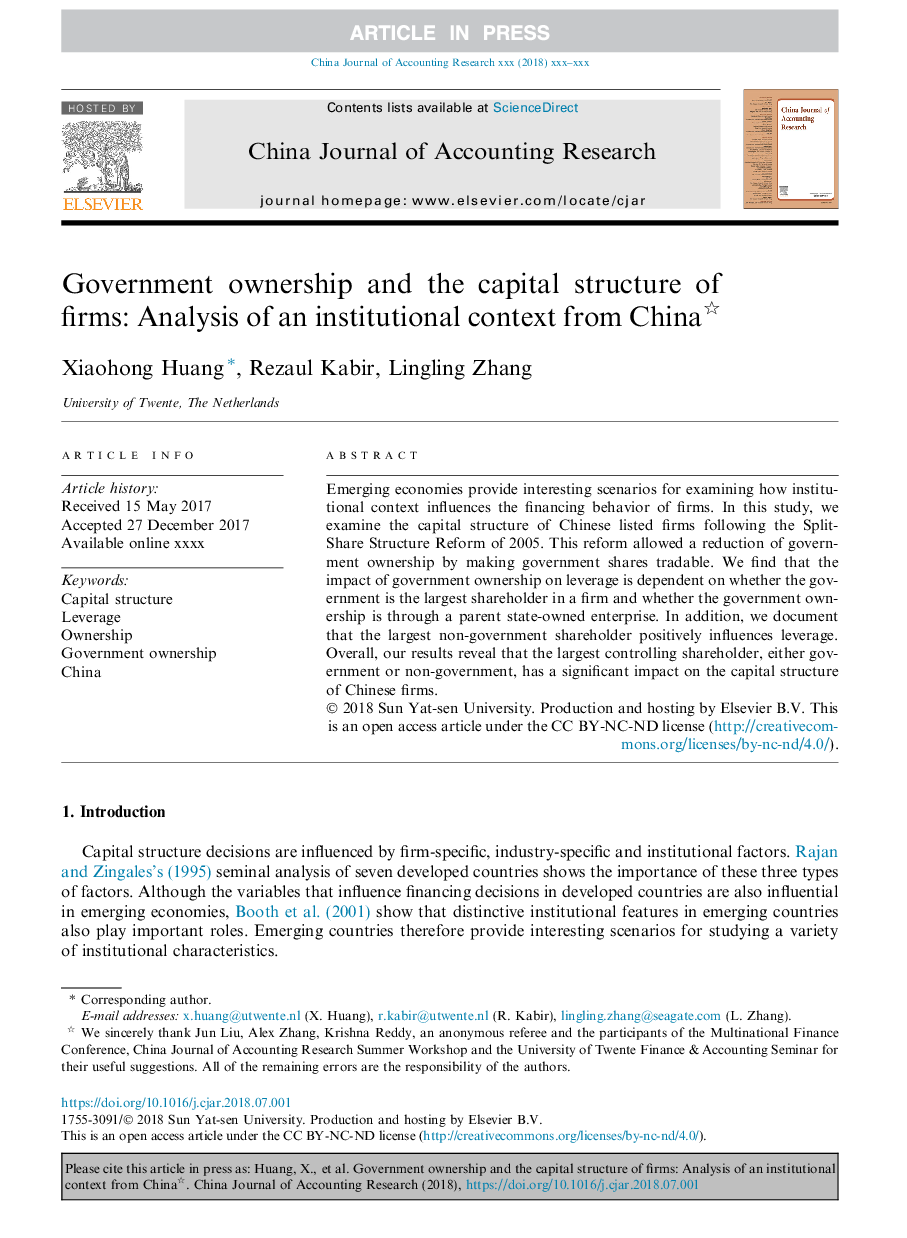| Article ID | Journal | Published Year | Pages | File Type |
|---|---|---|---|---|
| 8948057 | China Journal of Accounting Research | 2018 | 15 Pages |
Abstract
Emerging economies provide interesting scenarios for examining how institutional context influences the financing behavior of firms. In this study, we examine the capital structure of Chinese listed firms following the Split-Share Structure Reform of 2005. This reform allowed a reduction of government ownership by making government shares tradable. We find that the impact of government ownership on leverage is dependent on whether the government is the largest shareholder in a firm and whether the government ownership is through a parent state-owned enterprise. In addition, we document that the largest non-government shareholder positively influences leverage. Overall, our results reveal that the largest controlling shareholder, either government or non-government, has a significant impact on the capital structure of Chinese firms.
Related Topics
Social Sciences and Humanities
Business, Management and Accounting
Accounting
Authors
Xiaohong Huang, Rezaul Kabir, Lingling Zhang,
